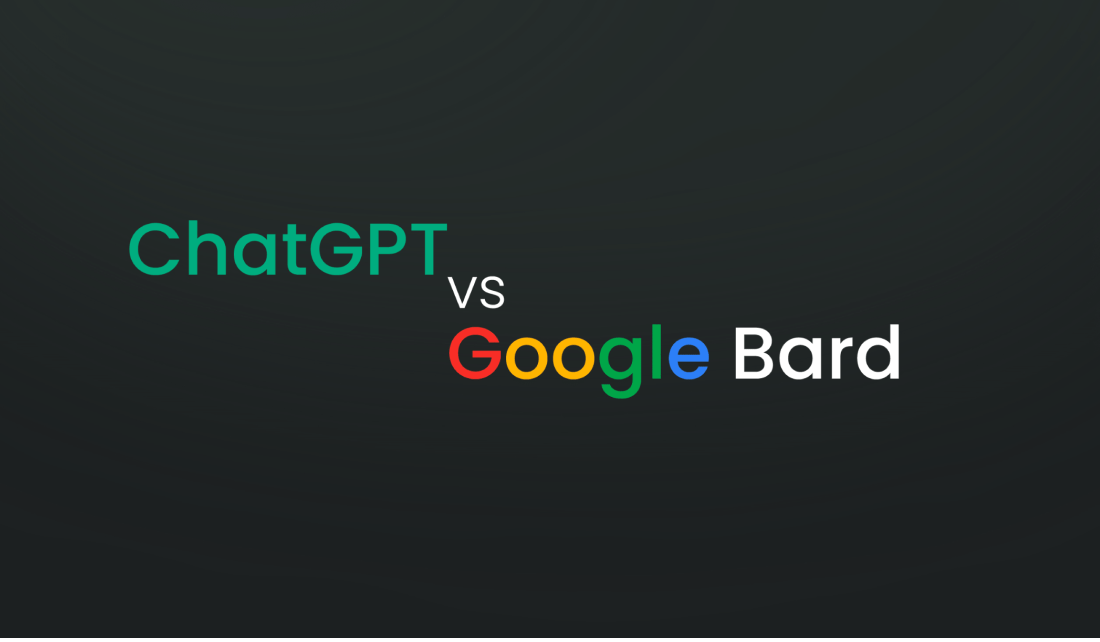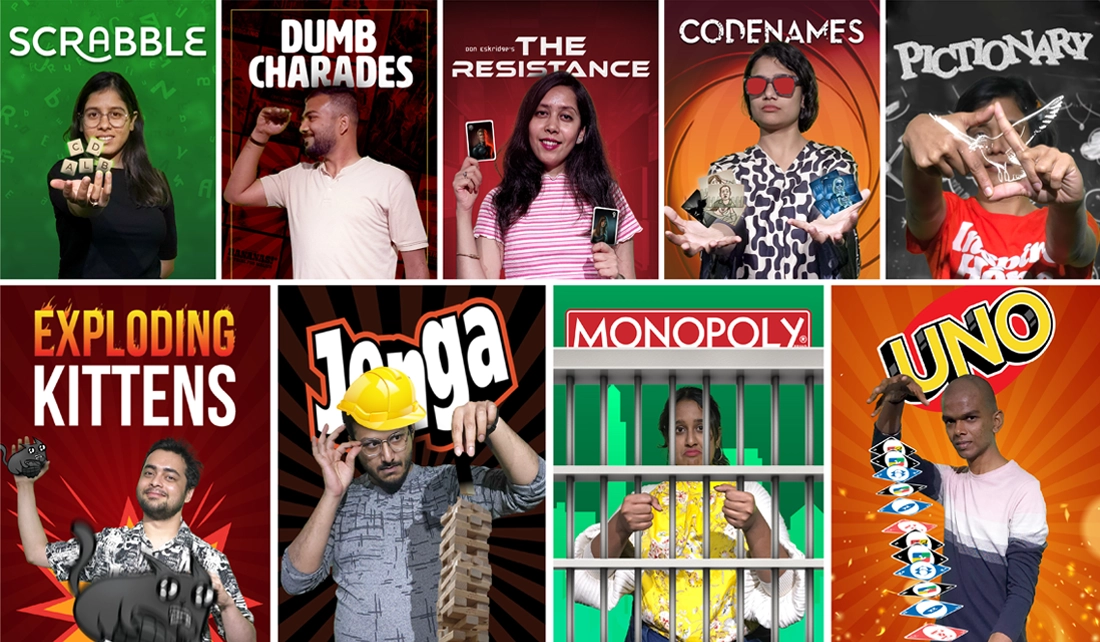Chatgpt Vs Google AI Tool Bard
16 Mar 2023 | Search Engine Optimization
7 Mins

ChatGPT vs Google AI tool (Bard): Overview of the Whole AI battle
Since its launch in November 2022, OpenAI’s ChatGPT has been making waves; they are calling it “the Google killer!”
A versatile AI-generated content creator which can make life easier, is certainly a thing of beauty; so much so that, according to Sam Altman, OpenAI’s CEO, ChatGPT reached 1 million users in just 5 days of its launch! Moreover, Microsoft announced a multi-billion dollar partnership with OpenAI to augment AI capabilities.
As soon as ChatGPT grew to prominence, Google went into a panic mode. The founder of GMAIL, Paul Buchheit, wanted Google to come up with a ChatGPT alternative, otherwise, he was of the opinion that Google would cease to exist by the end of 2 years!
Google has been dominating the internet search domain for over 2 decades. It occupies 90% of the search engine space and here, 99,000 searches take place every second. The existential threat posed by ChatGPT made many question whether it was the beginning of Google’s end.
Nonetheless, on 8th Feb, Google shut down all doubts when they announced a chatGPT competitor, Google Bard, which is currently in its beta testing phase.
What’s more is that if Microsoft’s agreement with OpenAI goes through, then the former will hold 49% stakes in the latter and claim 75% of its profits. This means that it will no longer be ChatGPT vs Bard, but Google vs Microsoft.
Irrespective of that, both have been in a race to advance their individual tools with the latest technology, and thus are showing all the signs of dominating this evolutionary market.
In addition, we cannot ignore China. This country dominates the global AI market by 70-80%. In fact, they have already announced their own ChatGPT alternative called Ernie which is also undergoing a testing phase. It also indicates that this war between ChatGPT and Bard has the potential to transform into a war between the US and China. A problem for another day perhaps.
At present, ChatGPT is giving Google sleepless nights, because 70% of Google’s revenue comes from its search engine ads. So the question remains, who will win this historic tech war?
Understanding ChatGPT Vs Bard Technology
Before we get into ChatGPT vs Bard, let’s understand the basics of this technology.
ChatGPT or Chat Generative Pre-training Transformer is a generative language model based on Pre-training and “transformer” architecture. Basically, an AI-powered search engine is a system that learns our language and caters to us in the same language. Large AI systems are trained with open data available on the internet. When it’s done on a massive scale and when this technology is trained to respond to different parameters, a large language model is created. It’s only after this training that this model becomes ready to respond to us in our language. ChatGPT has been trained with 1.75 billion parameters.
ChatGPT’s Generative Capability allows the tool to generate a variety of content like written code, product descriptions, blog posts, email drafts, summaries of transcripts, meetings and podcasts, simple explanations of complex topics, law briefs, translations, poems, jokes or memes; and social media posts. It equips the tool with the capability to understand and explain concepts. In computing terms, Generative is a technology that can utilise the combined potential of human and machine, which was previously considered impossible.
ChatGPT is also equipped with Transformer architecture. It is a type of neural network which includes self-attention layers that help a language model to understand the importance of different words and phrases in a given command. With the technology, the model understands the meaning and the context of the input and responds accordingly.
Pre-training is when the technology is trained to predict the next word in a sequence of words. At a mass level text is fed into it and then using different methods it’s trained to predict. ChatGPT has been fed with around 300 billion words from various different sources. A new input is stored in the system as additional data and patterns. With every new input, the knowledge bank grows, and that increases its efficiency.
ChatGPT is based on the GPT-3 language model which is built using the Transformer architecture. Interestingly, Google created and open-sourced the Transformer architecture in 2017!
Nevertheless, both ChatGPT or Bard are based on these technologies with negligible differences. ChatGPT’s competitor (Bard) will have an advantage of Google’s massive data set. Even though training this tool will take time, Microsoft’s ChatGPT has overcome this challenge as well.
The merging of Microsoft, ChatGPT, and Bing, put Google on an alert mode. The reaction was the announcement of Bard by CEO Sundar Pichai. For the past 7 years, the brand has been consistently working on the vision of an AI company. They worked on Advanced Generative AI and large language models that are grabbing eyeballs today. In addition, they have been consistently improving their search engine using AI. And, the fact that they have already announced ChatGPT’s competitor Bard even before it was completely ready, proves that the world is now progressing towards the disruptive AI technology. Google has also been running 20 large-scale programs to integrate AI with its ordinary products. Since it’s a pioneer in these technologies, it’s a possibility that in the near future, Google becomes 100% AI powered. 2 years ago, Google had also launched the next-generation Language and Conversation Capabilities Model which was powered by the Language Model for Dialogue Applications or LaMDA. LaMDA is perceived to be realistic enough to feel and think like human beings. Today, on the basis of the same LaMDA, Google is working on an Experimental Conversational AI service. Google Bard is the same Google AI tool.
Bard’s humongous knowledge reservoir can connect with the power, creativity and intelligence of large language models, to answer complex questions in the most fresh, customised, and high-quality language.
Google Bard AI vs ChatGPT
Bard looks similar to a search engine but the communication feels very human. Unlike Google Assistant and Siri, Bard is an AI-supported Natural Language Processing software. The biggest advantage is that AI deepens our understanding of the information and converts it into efficient knowledge.
AI technology is knowledge-based as opposed to information-based. An efficient knowledge production system which goes beyond objective information, can improve our efficiency manifold. If you ask Google about the difference between Palak Paneer and Pasta, it will easily give you an answer. But, if you ask, How to make Pasta taste delicious, it will give ‘n’ number of websites for us to choose the best answer. On Google, when it comes to getting deeper insights into something or finding something of relevance, it takes us more time than usual to find it. AI-powered chatbots save us this time and energy. They understand the question thoroughly and give a practice example which is not only precise but also comprehensive. We can ask a follow up question without switching to another website or webpage. Just like a personal trainer!
Conclusion
No matter which tool wins, the race has already begun. There are plenty of competitors. Whoever provides the best services, will rule this new world of AI. But, there are a few immediate concerns, like its impact on human learning patterns and labour markets. However, these are just predictions. It could affect our cognitive skills, but on the other hand, it could also establish simpler ways of going about tasks. For example, calculators have increased productivity, and not made us forget methods of manual mathematical calculations. That’s what we are expecting from AI as of now. This technology needs to be regulated in its early stages. Countries will have to implement regulations on its use, even though it appears to be difficult. After all, the usefulness of this technology is, to most extent, in our hands. The crux of the matter is, whether we like it or not, we won’t be able to avoid it.
Other Posts

Log Out, Play On: Offline Games to Wind Down After a Long Day of Digital Hustle
We love the fast-paced world of digital marketing agencies, but sometimes the grind can be overwhelming. Juggling social media, SEO, and paid marketing strategies, analysing data, drafting, designing creative...

ROAS vs. POAS: Choosing the Right Metric to Drive Paid Digital Ad Performance and Profitability
In the world of paid digital advertising, performance metrics guide marketers in optimising campaigns, managing budgets, and maximising profitability. Two key metrics often debated in this context are Return...

The Rise of Short-Form Video: Is It a Fad or the Future of Social Media?
Social media has undergone a dramatic transformation over the past decade. From the text-heavy posts of Facebook’s early days to the image-centric culture of Instagram, we’ve now entered the...



